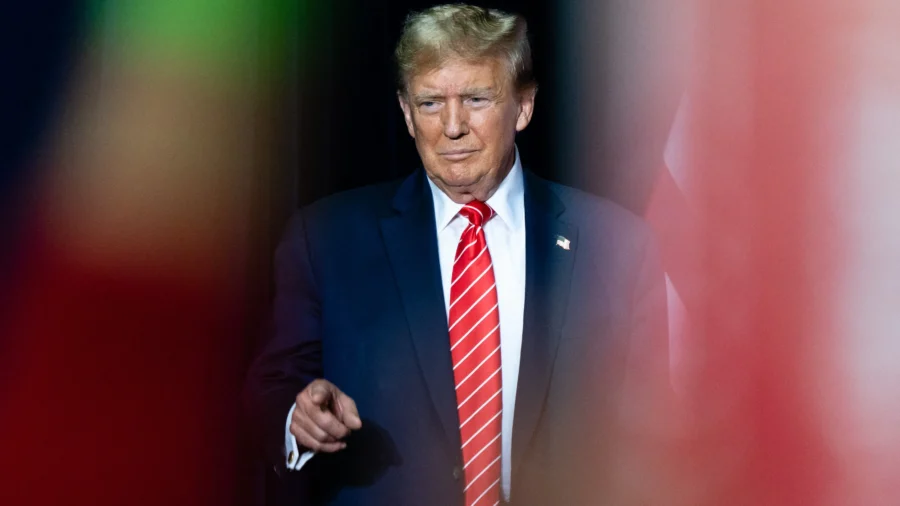Last month, U.S. District Judge Amit Mehta sought to advance a group of three civil cases filed against former President Donald Trump concerning his actions on January 6, 2021. Since then, the Supreme Court has agreed to review President Trump’s claim of presidential immunity in a criminal case related to the same events, prompting defense attorneys to request a pause in the civil proceedings.
During a March 12 status conference, the parties had come to a standstill on several matters, with President Trump’s attorneys insisting that the civil trial cannot proceed until certain matters in the criminal cases are resolved, thereby preserving his Fifth Amendment right against self-incrimination.
The judge then gave President Trump’s attorneys until March 19 to file a motion for a stay and the plaintiffs until March 26 to respond.
Case Overlap
Capitol Police officers James Blassingame, Sidney Hemby, Conrad Smith, and Reps. Eric Swalwell (D-Calif.) and Bennie Thompson (D-Miss.) had sued President Trump in his personal capacity for the Capitol breach on Jan. 6, and the cases have since been combined.
Judge Mehta previously held a status conference on Feb. 23 during which the parties also remained in a deadlock over the facts of the case.
President Trump had raised presidential immunity in civil cases previously, and an appeals court found that he should have the “opportunity to dispute the plaintiffs’ allegations bearing on the immunity question or to introduce his own facts pertaining to the issue” and that he “must be afforded an opportunity to resolve this immunity claim before merits discovery.”
But during the hearing, defense attorneys argued that President Trump could not admit any sort of answers under oath at this time because he is also subject to criminal prosecution over his alleged actions on Jan. 6.
During the March 12 hearing, the plaintiffs’ attorneys stated that the defense hesitated to answer even simple questions, such as who was managing President Trump’s Twitter account or which White House staff member facilitated his appearance at the January 6 rally.
Defense attorneys cited a federal court ruling that found that Twitter accounts in some cases constituted official government speech, and thus even social media posts could be covered by presidential immunity. However, they acknowledged that this was uncertain legal ground and requested that the court hold off on trying the case until the imminent Supreme Court decision, which they said “will shape the defense on that issue.”
Presidential Immunity
The Supreme Court has agreed to hear arguments on the question of “whether and if so to what extent does a former President enjoy presidential immunity from criminal prosecution for conduct alleged to involve official acts during his tenure in office.”
The question comes from President Trump’s appeal of his motion to dismiss a case brought by Special Counsel Jack Smith in Washington, charging him with four counts of conspiracy and obstruction.
President Trump has already argued that he has presidential immunity in several criminal and civil cases, but various jurisdictions have handled that defense differently.
Some judges have ruled that President Trump’s actions, though they took place during the period in which he was in office, were taken in a personal capacity rather than an official one. Others have said that as a former president, he no longer enjoys immunity.
Presidential immunity is not spelled out in the Constitution but comes from a Supreme Court ruling that found the “absolute immunity” conferred to a president extended to the “outer perimeter” of his duties. The court ruled on this immunity in relation to civil lawsuits and has never addressed the question concerning criminal prosecution.
The cases before Judge Mehta are civil suits, but defense attorneys say they expect the Supreme Court to draw a line between official and personal actions if one does exist.
From The Epoch Times

